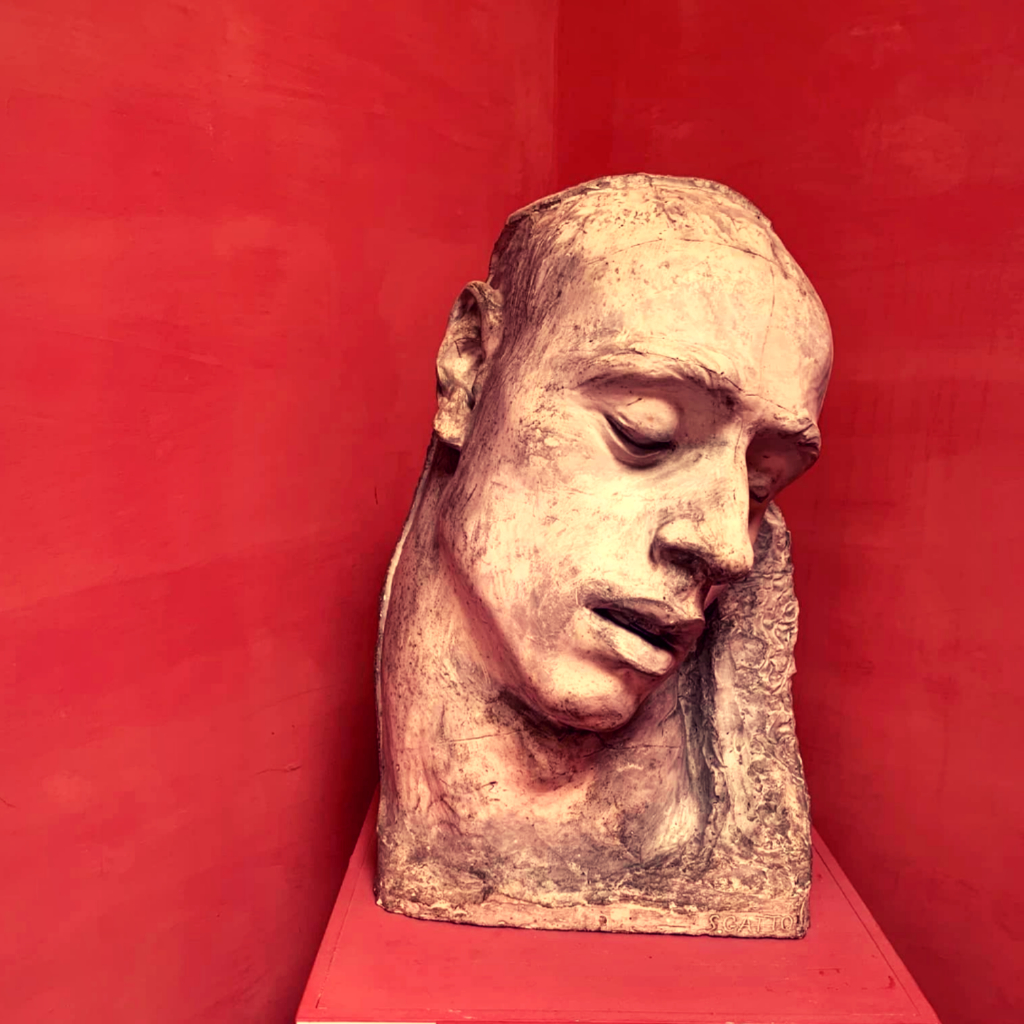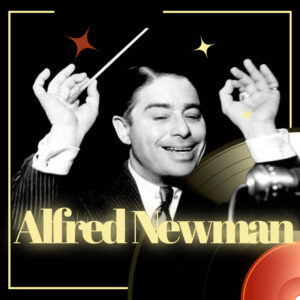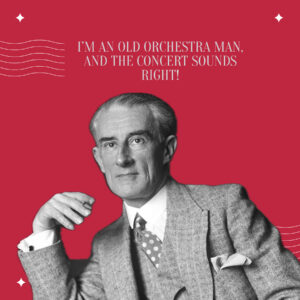His life is literally overflowing with the light of grandiose musical events. We have selected some facts from this rich musical journey regarding the performances of his youth, early and mature years. We also suggest you to watch a documentary about the life of the violin genius of the 20th century.
Young Yehudi was exceptionally gifted. His family moved from New York to California, and he spent most of his first decade in San Francisco, where he studied first with Austrian-born Sigmund Anker and then, at the age of seven, with Louis Persinger, a student of Eugene Ysaye.
His first public performance was on 9 November 1922, when he performed Accolay’s violin concerto in A minor at the San Francisco Civic Auditorium. In February 1923, he performed Charles de Beriot’s Concerto No. 9 “with the poise and temperament of a veteran” – according to the San Francisco Journal. He gave his first full-length solo recital in 1925, aged eight at the Scottish Rite Auditorium, San Francisco, the programme included Mendelssohn’s violin concerto (with piano accompaniment).
At age nine, he made his debut at the Manhattan Opera House in New York City. The Menuhin family moved to Europe so that Yehudi could continue his studies with the two best musicians in the world: the Romanian George Enesco in Paris and the German Adolf Busch in Basel.
At the age of 10, he made his debut in Paris, performing Lalo and Tchaikovsky under the conductor Paul Paray.
At the age of 11, he played his first Beethoven violin concert at Carnegie Hall, and the orchestra was directed by Fritz Busch. In December 1928, he gave the world premiere of Abodah (“God’s Worship”) written especially for him by Ernest Bloch. It was the first of over 40 commissions and dedication; composers who wrote for him, including Frank Martin, Andrzrej Panufnik and Malcolm Williamson. In January 1929, he received a $60,000 Stradivarius violin, known as the Prince Khevenhueller (after the first owner).
During the war, Menuhin flew to Britain twice to play for British and French troops and factory workers. Within days of their liberation in 1944 he gave concerts in Antwerp, Brussels and Paris, where he had lived during his teens while studying with Enesco. On his way back to England from Paris his plane crash-landed in a Kent field and he hitch-hiked to London to fulfil a BBC radio broadcast later that day.
In November 1944, in New York City, he ordered from Bella Bartock and made the world premiere of the Sonata for solo violin.
In April 1945, he played at the inauguration of the United Nations General Assembly in San Francisco.
Soon after the end of the war Menuhin travelled to the Belsen concentration camp to play for survivors of the holocaust and also for German civilians. His pianist was Benjamin Britten. His tour of destroyed Germany concluded with a broadcast performance from Hamburg of the Mendelssohn violin concerto, the first time Germans had heard it since the banning of Mendelssohn’s music in 1933.
In November 1945, he flew to Moscow and befriended the great violinist David Oistrakh. He also visited the Moscow Central School for Gifted Musical Children, which inspired him to establish his own international school in England two decades later.
In 1946-47 he actively advocated a return to the great musical scene of Wilhelm Furtwängler, giving concerts with him at festivals in Salzburg and Lucerne, and then in Berlin. In Berlin, his speech for the Jewish displaced was boycotted because of his support for Furtwängler. The next day, he visited a nearby camp and made a convincing case for reconciliation between the victors and the vanquished.
In 1950 he made his first visit to Israel. He was greeted by bomb threats but went ahead with a series of public recitals partnered by his sister Hephzibah.
In 1950 he visited South Africa and spoke out against segregation. He insisted on playing for black audiences as well as white. He made a second visit in 1956 to appear at the Johannesburg Festival but did not return thereafter until the end of apartheid. In 1996 he conducted Handel’s Messiah with a black choir in a township outside Johannesburg.
Commemorating the 100th year of his birth, Yehudi Menuhin: Who’s Yehudi? explores the extraordinary musical life of one of the 20th century’s greatest violinists.
Presented by Clemency Burton-Hill, who was a student of Menuhin’s, the programme traces his life and work with the help of interviews from family members and close friends and unseen home movies.
A child prodigy, Yehudi Menuhin achieved more by his teens than most artists do in a lifetime. But the man behind the violin was harder to know; his cocooned and curious childhood marked him emotionally for life.
Endlessly touring and crossing continents and cultures, the man whose contract with EMI was the longest in the history of the music industry, took classical music out of the concert hall because he believed music was for everyone and had the power to change lives. An impassioned idealist, Yehudi wanted to give more to the world than music; he became a tireless figure fighting for the humanitarian issues he believed in.
His musical interests embraced jazz and Indian ragas, as well as Bach, Beethoven and Bartok.
Presenter Clemency Burton-Hill was 15 and at the Royal College of Music when Yehudi first heard her play and asked her to study with him. Here, she presents an intimate, behind-the-scenes journey from his childhood in California, to meeting gypsies in Romania and travelling to India and beyond.
Interviewees include two of Menuhin’s children, Zamira Benthall and Krov Menuhin; violinists Tasmin Little and Daniel Hope; Gordon Back, Yehudi’s accompanist and now Artist Director of the Menuhin Competition; close friend Christopher Hope; and Anoushka Shankar, Ravi Shankar’s daughter.
The programme also includes a moving interview with Anita Lasker-Wallfisch, who played in the Women’s Orchestra in Auschwitz and later saw Menuhin play with Benjamin Britten at Belsen concentration camp in 1945.
Yehudi Menuhin: Who’s Yehudi?, is a 1212 Production, commissioned by Jan Younghusband, Head of Music TV Commissioning, for Cassian Harrison, Channel Editor, BBC Four. The executive producer for the BBC is Emma Cahusac, the executive producer for 1212 Productions is Philip Armstrong-Dampier and the producer/director is James Maycock.
In September 1963 the Yehudi Menuhin International Music School opened in a former hotel in Kensington. The school moved the following year to its present premises in Stoke d’Abernon near Cobham, Surrey. In 1965 the Queen bestowed an honorary knighthood (KBE) on Yehudi; because he was an American citizen he could not use the title.
April 1966: Menuhin celebrated his 50th birthday with a concert at the Royal Festival Hall. His son Jeremy, then 14, made his public debut playing Mozart’s concerto for three pianos with his aunts Hephzibah and Yaltah. In June 1966, at the Bath Festival, he conducted his first Mozart opera, Cosi fan tutte.
1972: A speech delivered at the IMC Congress in Moscow criticised the Russian government for its treatment of dissidents, including Mstislav Rostropovitch and Alexander Solzhenitsin. Pravda ignored the speech but the text, translated into Russian, was circulated clandestinely.
December 1971: Menuhin’s celebrated partnership with jazz violinist Stephane Grappelli was inaugurated on BBC TV with Jealousy. They recorded six LPs over the next decade.
1995: From the Sitar to the Guitar – a live telecast from the Cirque Royale in Brussels – a history in music and dance of the great trek of the Romanies (the gypsies) from India to Spain, hosted by Ravi Shankar and Yehudi Menuhin. Prince Charles leads Menuhin’s 80th birthday celebrations at Buckingham Palace. The entertainment includes scenes from Bruno Monsaingeon’s wide-ranging and affectionate new documentary, The Violin of the Century.
A concert in New York marks Menuhin’s 80th birthday with 14 works dedicated to Menuhin. Composers included Steve Reich, John Tavener and Lukas Foss.
October 1996 Menuhin conducts a concert for peace in war-torn Sarajevo.
1997 First meeting, in Brussels, of the Assembly of Cultures, another of his international projects.
In Autumn 1998 he embarked on a new documentary for the BBC entitled Menuhin’s Children. He wanted to show how a dozen ordinary children at a Surrey primary school could learn to play the violin from scratch. He died before the experiment was completed, but it was deemed a success.



